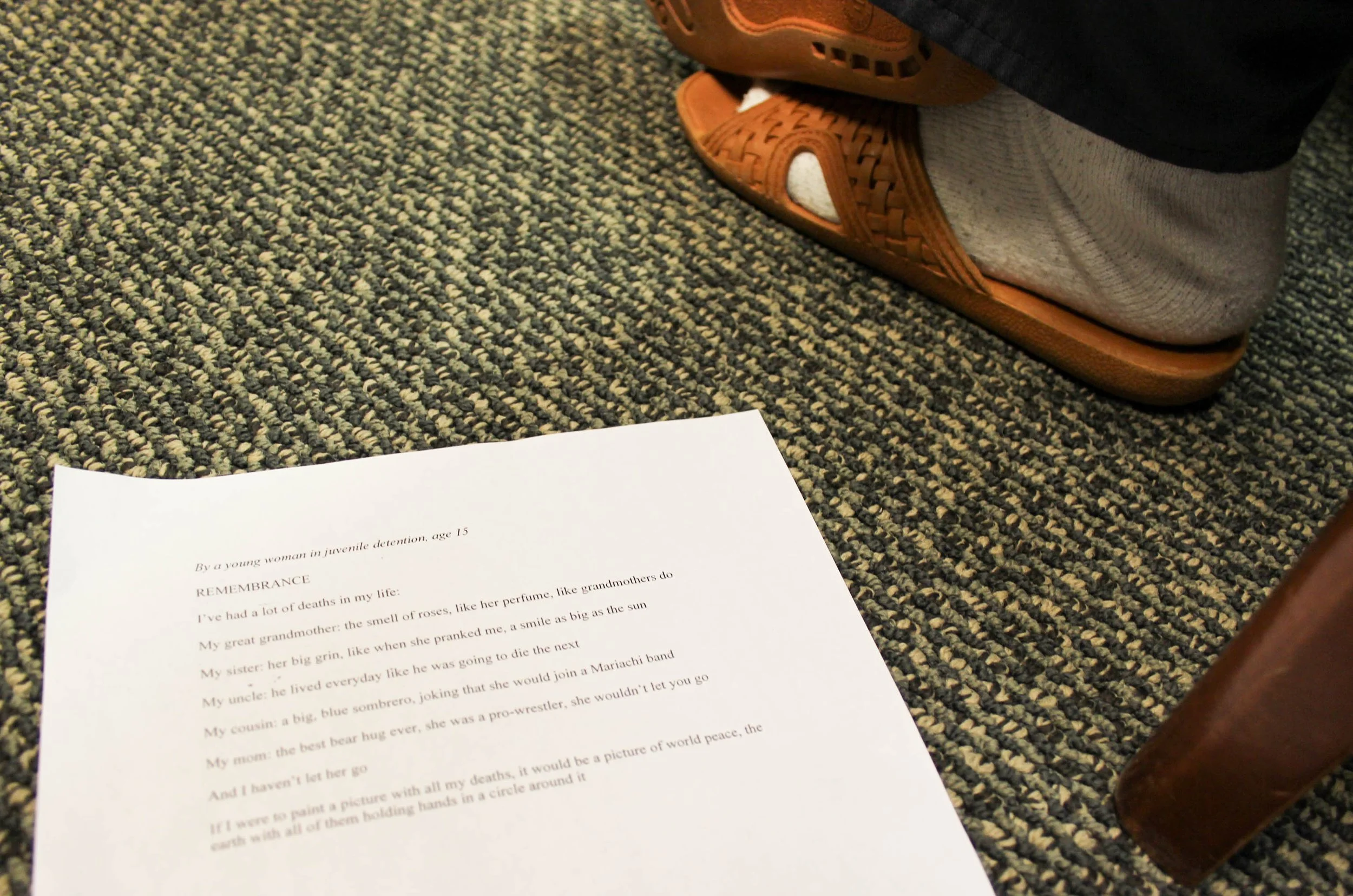Pongo Poetry Project Provides Creative Therapy to Struggling Youth
What would the world be without poetry today? Poetry, a quintessential art form, always needs more attention, affection, and appreciation. The Pongo Poetry Project, a nonprofit organization based in Seattle, is just one of many that continues to keep this art form alive while fostering new writers into its environment.
Founded back in 1995, the Project tackles expression head on with a visionary approach of what poetry can truly offer. The forefront of their mission is “to engage youth in writing poetry to inspire healing and growth”. There is nothing more admirable than helping people restore the lost pieces of themselves. After helping over 7,100 individuals alone, I have faith their numbers will continue to prosper along with their poetry.
A young person writing in a notebook at Echo Glen Children's Center, a juvenile rehabilitation facility in Snoqualmie (video still).
Courtesy of Pongo Poetry Project
Richard Gold, founder of Pongo, served as executive director for over 25 years. It was here that Gold coined the Pongo Method and Pongo was born. In 2020, Gold retired, but Pongo continues to soar past its known limits and thrive in his honor and memory.
Many people often wonder what it is that young people must heal from, but I remember poetry finding and offering me salvation at a young age while restoring my fractured sense of self. At the end of the day, “young people want to heal” just like everyone else. With life not always feeling linear, creatives, writers, and artists often explore their trauma in a variety of ways before finding a medium what sticks.
So what is the Pongo Methodology? It can be described as the following:
“At the heart of our program is the Pongo Method, a trauma-informed technique for teaching poetry, created in consultation with prominent community psychiatrists from the University of Washington. Pongo’s approach offers youth a safe, gratifying way to express feelings about some of the worst experiences imaginable, including incest, rape, beatings, abandonment, and witnessing violent death. Our approach engages youth in writing poetry in service of finding healing and inspiring resilience.” [site]
Poetry can be utilized to process almost anything but most never imagine troubling experiences like these. Pongo doesn’t sweep traumas under the rug. Instead, Pongo encourages people to explore these wounds, both old and fresh, to find everlasting healing.
One of the highlights Pongo offers is their volunteer opportunities. Pongo always seeks mentors and project leaders to work with its youth, which can mean a multitude of tasks. All mentors and project leaders would work on a one-on-one setting, small group setting, or a classroom, depending on how best they want to serve. One would not just be committing their time, but creativity, heart and soul.
It is easy to show up. It is harder to stay present, aware, and truly care about navigating each youth’s individual healing journey. More guidelines for volunteering can be found on Pongo’s website.
Pongo’s impact
Pongo Poetry Project website
Not only does this reap monumental benefits for the youth, but also for the mentor that attends to them. The symbiotic relationship between the two is awe-inspiring and joyous. As someone who has worked with children and loves to find new ways to explore the untamed realms of poetry, I am intrigued in taking on an active role myself.
I always wished I started writing poetry earlier, but I believe poetry finds you when needed and will always stay with you when wanted. Pongo Poetry is actively accepting pieces from writers under the age of 25 through its plethora of writing activities. This is a good way for aspiring writers to get their work out there and dip their toes into the world of creative writing and publishing. The biggest struggle I had as a new writer was figuring out how to send out submissions and where to submit them; sometimes I still question myself and what I am doing.
Pongo provides potential poetry prompts online that can bring out creative geniuses, especially for those new to the facets of poetry. Some example prompts consist of Lessons of Courage and Fear, Where I Come From, and This Is Who You Are to Me. They are always willing and eager to hear new and marginalized voices.
Ann Teplick, “a cherished member of the Pongo community” and past reviewer, has always encouraged submissions and anticipated these unique voices. On Pongo’s website, Teplick stated:
“I come from story. I believe each of us has important stories to tell and that art is the perfect vehicle to express them. I know when we do, we have the opportunity to better understand ourselves and our worlds. I believe when we share our stories, we open the doors for others to better understand who we are. And that this understanding opens the door to kindness and compassion. For me, elevating youth voices is critical, and especially the voices of those who may be overlooked.”



